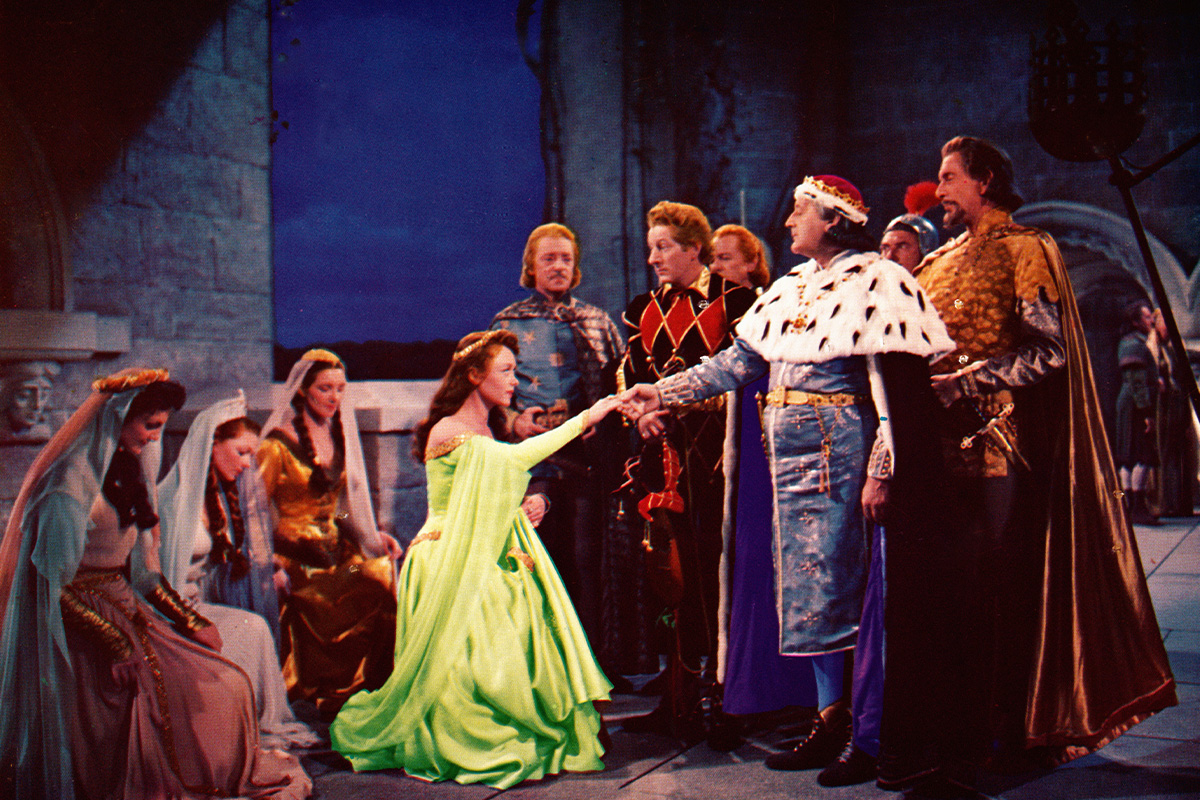The Hebrew month of Adar is a time of joy and celebration. It is the month of the holiday of Purim, and of recognition that plans don’t always go as expected. The mighty may fall, the triumphant may fail, and the most dire of circumstances may yet be undone. In the Book of Esther we read, “Venahafoch hu” — and it was flipped — the opposite of every expectation came to be.
The Megillah itself feels very film-like. It unfolds like a drama, but it tells a story that wouldn’t play as well in real life. Traditionally, the Purim story didn’t unfold as one event after the other. Rather, like a well-edited story, the Megillah gives us a clear vision of disparate, seemingly unconnected events that could only be fully understood as a larger story when seen after the fact. It’s full of drama, palace intrigue, assassination attempts and colorful characters. There are retellings of the Purim story, but we still don’t have a capital-G Great Purim film.
I recommend you watch “The Court Jester” instead.
“The Court Jester” is not a Purim movie. But it’s not not a Purim movie, either. Like Ahasuerus in the Megillah, an illegitimate king sits on the throne. He calls for the maidens of the land to be brought before him, and is particularly struck by one of them. Her multilingual love interest who acts as her adoptive guardian comes to court as well, contending with a wicked advisor to the king (a pitch-perfect Basil Rathbone). The maiden comes before the king without being called, in order to develop a plan to save her people. Later, a nighttime deliberation by the king proceeds: What is to be done with this man, the one they don’t know is related to the maiden? A decision is made and he is paraded around with pomp and ceremony. And then, in a great reversal of fortune and in a battle against tremendous odds… well, you get the picture.
Glynis Johns (best known as Mrs. Banks in “Mary Poppins”) plays the fair Maid Jean, a fitting surrogate for Esther in her determined fight to protect her people, but “The Court Jester” is nothing without Danny Kaye. Born David Daniel Kaminsky to Ukrainian Jewish immigrants in Brooklyn, Kaye was a consummate entertainer who could sing, dance and read whole swathes of tongue-twisters fast enough to make Aaron Sorkin’s head spin. He was UNICEF’s first Goodwill Ambassador to the world’s children, a performer with comic agility and a delicateness, too. And as the star of “The Court Jester,” he plays a role that doesn’t always have a direct analogue to Purim, but still feels distinctly Jewish.
As Hubert Hawkins, Kaye plays a character who thumbs his nose at the traditional Christian monarchy. He’s a jester who’s smarter than the fools at court, constantly outwitting the proper English gentlemen of nobility. He turns their knighthood into a farce, their chivalry into a joke. Even while supporting the monarchy, he makes a mockery of it — everything hinges on “a royal birthmark on the royal posterior of a royal child.” Which is to say he flashes a baby’s butt at crowds of people to prove they’re looking at the king. And they always kneel.
“The Court Jester” is also, simply, a gorgeous movie. Its rich colors of red and blue, green and purple pastels and beyond make a strong visual impact against the drab grays of stone and castle, thanks especially to the sumptuous costuming by Yvonne Wood and Jewish designer Edith Head. The movie is packed with people, with large scenes full of extras that offer a great visual depth to the images of banquets and ceremonies, fights and jousts. Especially in Paramount’s recent restoration, this is a movie that’s an absolute pleasure to watch.
Purim is defined by song and merriment. So is this lovely movie. If there was one flaw to “The Court Jester,” it would be that we need more music. The film contains five musical numbers, with snippets of deleted songs scattered throughout. In each one, Kaye balances his goofiness and tenderness, the jester and the lover all in a single package. “Excessive merriment,” Rabbi Akiva said, “leads to sexual immorality.” Laughter is an intimate thing, and on this holiday, with drinking and singing and lots of merriment, we toe the line of what true intimacy means.
So, if you want to connect to Purim in a new way, find a new lens through which to view the Megillah story, or just have some fun with beloved Jew Danny Kaye and one of the great musical comedies of American film history, watch “The Court Jester.” It’s the perfect pairing for a holiday that celebrates the way coincidences are more than they seem — a movie about one man trying to handle everyone’s machinations that rely on him, as fortune and timing seem to always be in his favor.



